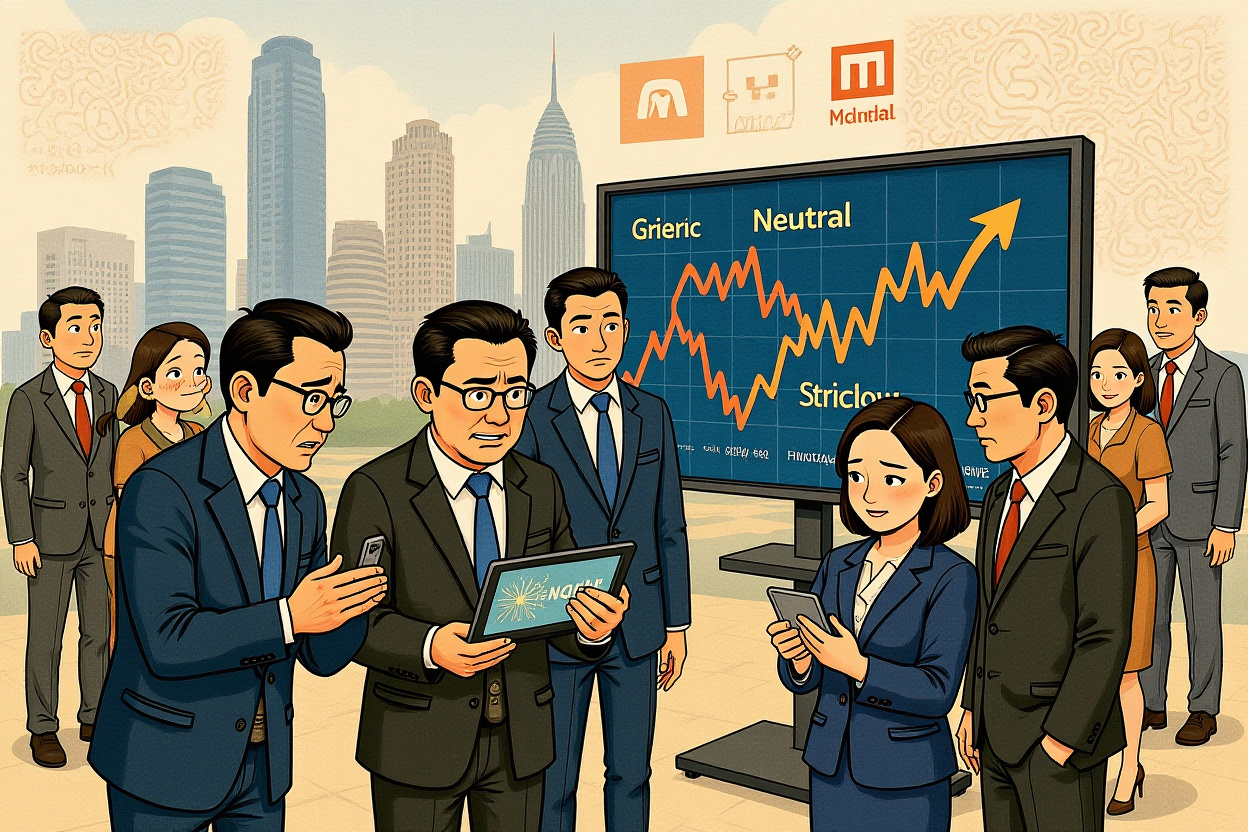Executive Summary
– Goldman Sachs has downgraded Gree Electric Appliances Inc. of Zhuhai (格力电器) from ‘Buy’ to ‘Neutral’ due to weak market demand and heightened competition.
– Analyst Nicolas Yi (Nicolas Yi) highlighted Gree’s vulnerability in the mid-to-high-end market segments because of its premium pricing strategy.
– Despite the downgrade, Gree is projected to offer a 7% dividend yield in 2025, providing some valuation support.
– Rivals Midea (美的), Haier (海尔), Hisense (海信), and Xiaomi (小米) retain ‘Buy’ ratings, signaling stronger competitive positioning.
– The move reflects broader challenges in China’s consumer appliance sector, including slowing demand and aggressive new entrants.
Market Reacts to Goldman’s Gree Electric Downgrade
Global investors in Chinese equities are recalibrating their strategies after Goldman Sachs downgraded Gree Electric Appliances Inc. of Zhuhai (格力电器), a bellwether in China’s consumer appliance sector. The downgrade from ‘Buy’ to ‘Neutral’ signals growing concerns over soft demand and intensifying competition, particularly from tech giant Xiaomi (小米), which has re-entered the air conditioner market with aggressive pricing and smart features.
Key Factors Behind the Downgrade
In a report dated September 15, Goldman Sachs analyst Nicolas Yi (Nicolas Yi) outlined two primary reasons for the downgrade. First, demand weakness in the home appliance market has clouded Gree’s growth outlook. Second, Xiaomi’s renewed focus on air conditioners has escalated competitive pressures, eroding Gree’s market share.
Demand Weakness and Its Impact on Gree
China’s economic slowdown and subdued consumer spending have hit the appliance sector hard. Gree, heavily reliant on air conditioner sales, faces declining shipments and thinner margins. Industry data shows air conditioner sales growth slowed to 2% year-on-year in recent quarters, compared to historical averages of 8-10%.
Regional and Segment Vulnerabilities
Gree’s exposure to lower-tier cities, where demand has softened significantly, exacerbates these challenges. Additionally, the company’s premium pricing in mid-to-high-end segments makes it susceptible to competition as consumers become more price-sensitive.
Xiaomi’s Disruptive Entry into the Air Conditioner Market
Xiaomi (小米), known for its disruptive business model, has re-entered the air conditioner market with competitively priced, IoT-enabled products. Leveraging its strong brand and ecosystem, Xiaomi has captured market share rapidly, particularly among younger, tech-savvy consumers.
Competitive Dynamics and Market Share Shifts
Xiaomi’s entry has forced incumbents like Gree to engage in price wars, squeezing profitability. According to Goldman’s analysis, Gree’s market share in the air conditioner segment fell by 3% in the past year, while Xiaomi’s rose by 5%.
Valuation Support from Dividend Yield
Despite the downgrade, Goldman Sachs notes that Gree’s projected 7% dividend yield for 2025 could provide valuation support. This high yield may attract income-focused investors, even as growth prospects dim.
Dividend Sustainability and Investor Appeal
Gree has a history of robust dividend payments, supported by strong cash flows. However, if competitive pressures persist, the company may need to conserve cash, potentially impacting future payouts.
Implications for Broader Chinese Equity Markets
The Goldman Sachs downgrade of Gree Electric reflects broader trends in China’s consumer appliance sector, including slowing demand, increased competition, and margin pressures. These dynamics are critical for investors tracking China’s domestic consumption story.
Sector-Wide Recommendations
Goldman maintained ‘Buy’ ratings on rivals Midea (美的), Haier (海尔), Hisense (海信), and Xiaomi (小米), citing their better adaptability to market changes and stronger innovation pipelines.
Strategic Takeaways for Investors
For global investors, the downgrade underscores the importance of monitoring competitive dynamics and demand trends in China’s equity markets. Gree’s challenges highlight the risks of investing in companies with high exposure to slowing sectors and intense competition.
Actionable Insights
– Diversify exposure within the consumer appliance sector, favoring companies with strong innovation and competitive moats.
– Closely monitor dividend sustainability for income-focused strategies.
– Keep an eye on regulatory developments and consumer sentiment indicators for early signals of demand recovery.
Looking Ahead: Navigating China’s Appliance Market
As China’s economy evolves, companies like Gree must adapt to shifting consumer preferences and competitive landscapes. Investors should prioritize firms with agile strategies, robust R&D, and strong brand equity.
Goldman Sachs’ downgrade of Gree Electric serves as a reminder of the fast-changing nature of Chinese markets. Stay informed with real-time analysis and expert insights to make timely investment decisions.




